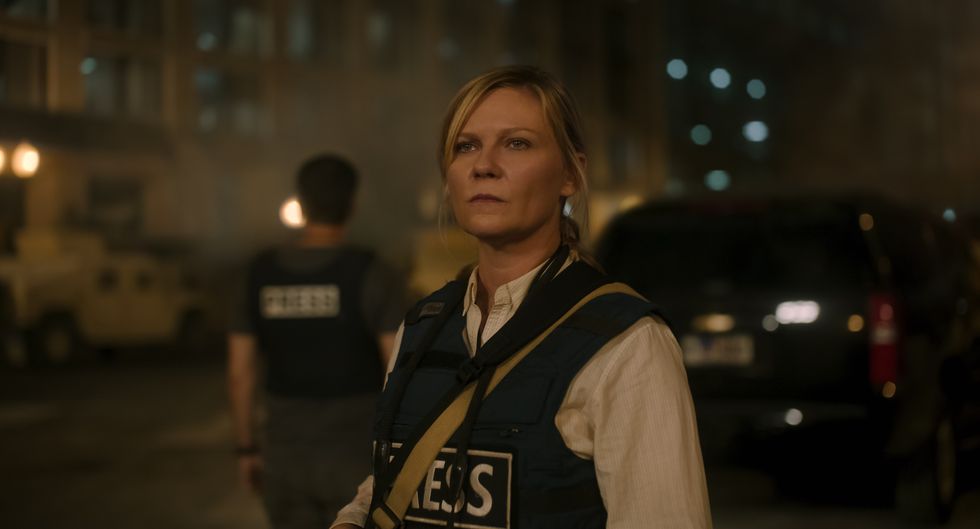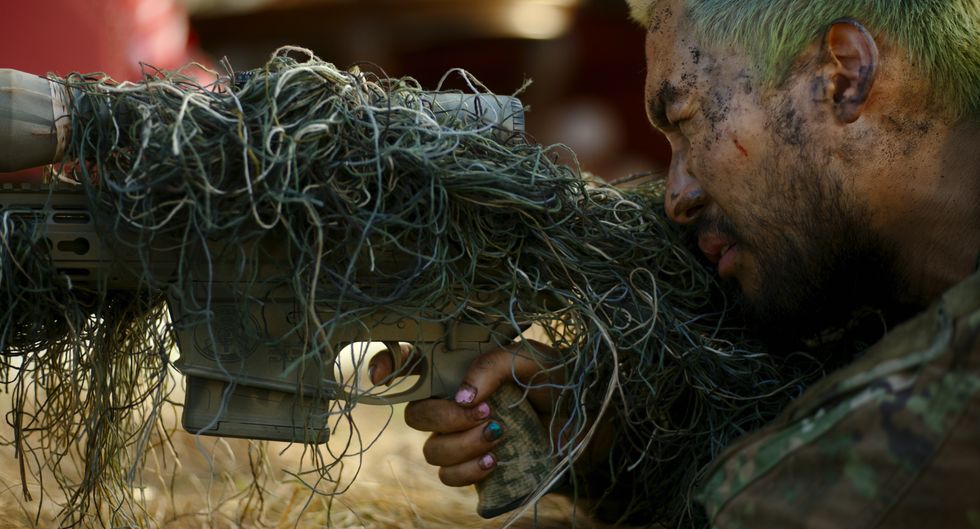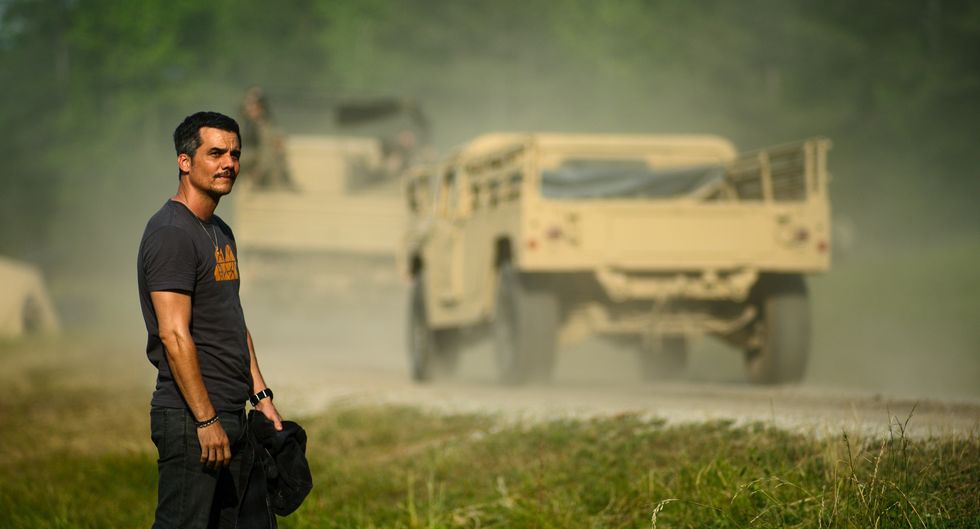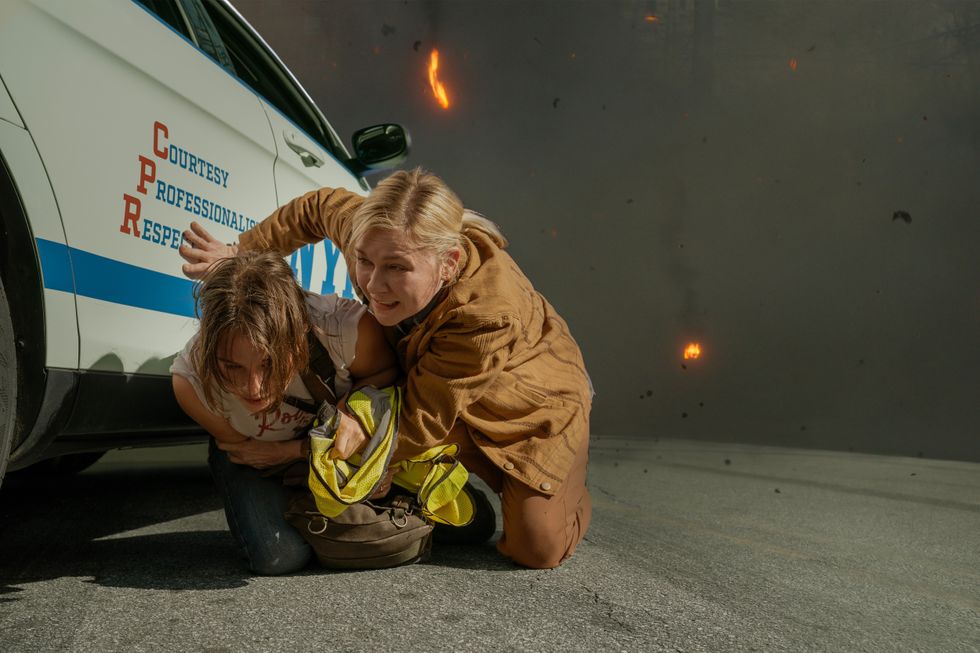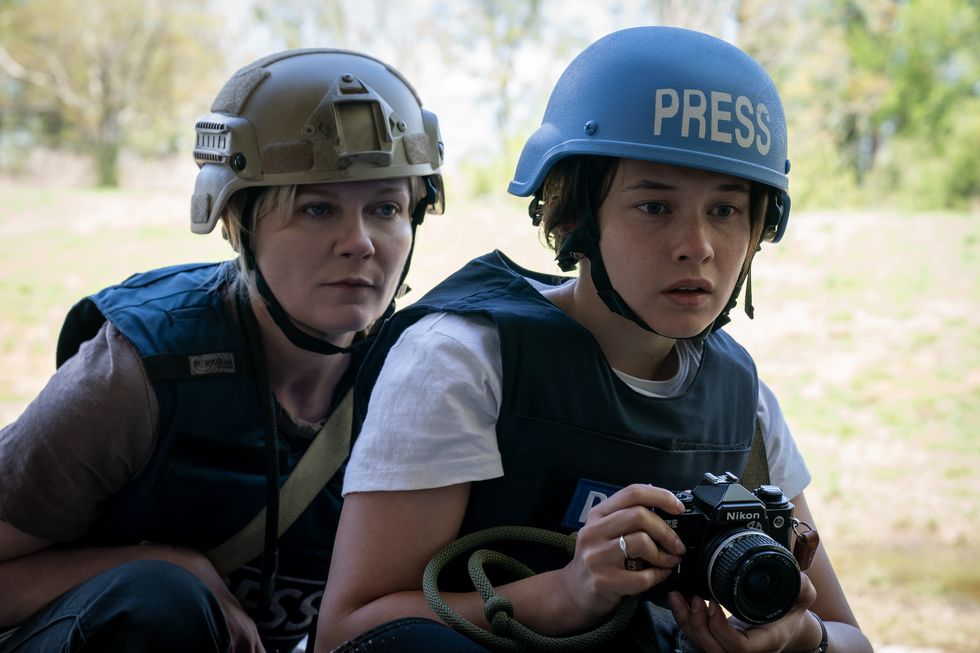'Avengers: Endgame' DP Reveals the Challenges of Shooting That Epic Battle
Cinematographer Trent Opaloch takes us through that final battle in Endgame and talks about the challenges of shooting an epic finale with 100-plus characters.
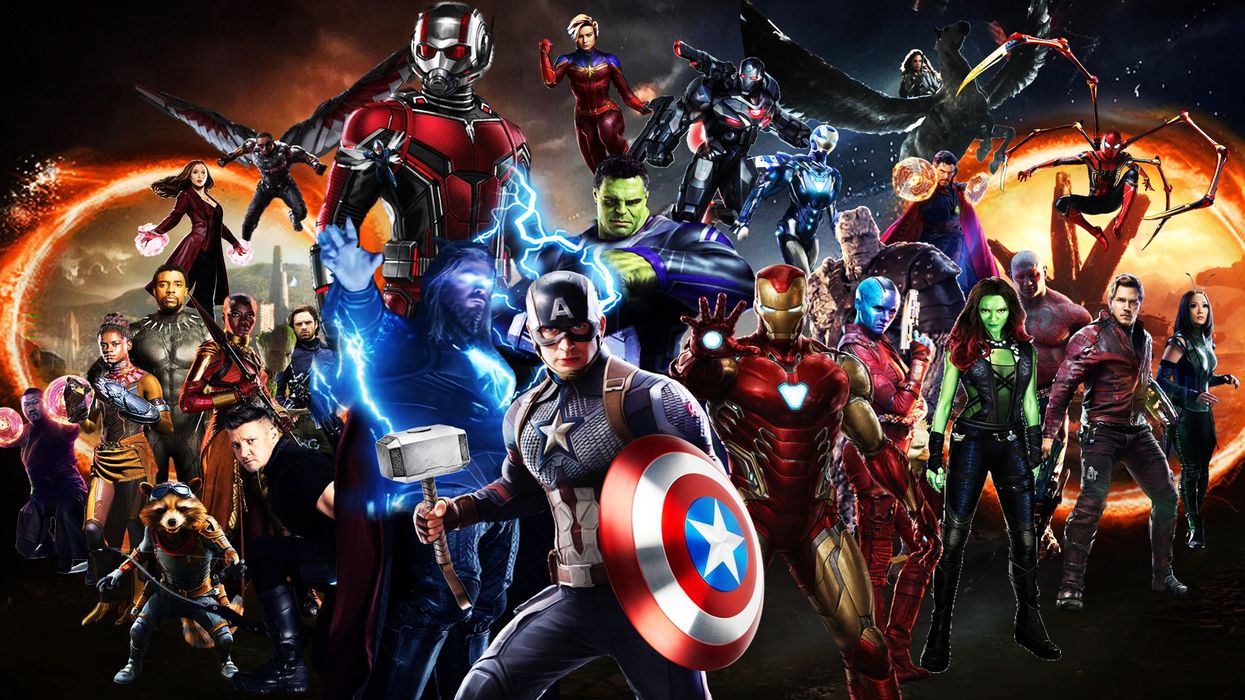
When Avengers: Endgame cinematographer Trent Opaloch heard about the plans for the epic battle that concludes the highest grossing movie of all-time, he knew it would be tough to pull off. But if a bunch of scrappy heroes could take on Thanos, what was stopping him from filming it?
Planning a shoot is obviously hard, but planning one of the biggest shoots in the history of filmmaking is... harder. Opaloch recently sat down with Collider and shared how he and the crew pulled off the task, as well as revealing his thoughts on shooting in general. His answers are very insightful for someone at that level of filmmaking -- check 'em out:
The Biggest Challenges of Pulling Off Endgame's Epic Final Battle
So what is it like to get the call that you'll be the cinematographer on one of the biggest movies ever made, one that will probably take you to the brink?
Well, here's how Opaloch describes it:
"I was at a hockey game in San Jose, during the playoffs, when I got the call from Joe. I mean, that was the official call. “Hey, we want you on board.” And it was cool, but it was pretty daunting. You know that that’s going to be three years of your life. And that’s one thing I really struggle with films is -- that I have all these hobbies and interests outside of filmmaking -- and you put all of that on pause when you go do a movie for six months to a year or whatever, and you leave your friends and family, and you kind of go on the road with that film. So it’s a big responsibility to accept the film. But it was the same thing. The idea of making those two movies, that would be very challenging, but to make them with Joe and Anthony and the rest of the Marvel family, you just sort of know what’s in store, you know what the overall experience is going to be like. So as big and daunting as the scale is, it’s sort of like you’ve got the best selection of human beings around you to make it happen. So it’s a way more pleasurable than you think the experience could be. You know?"
That started with the writing and extended into the cinematography. According to Opaloch:
"I mean, it’s funny because not just with the [Russo] brothers, but on other projects -- either commercials or shorts -- sometimes I find when you start, there’s a theoretical discussion level that happens in the early stage, right? That guides the process and informs things, but everything gets trumped by what you see on the day. And so basically the feeling, and this is what I love about filmmaking, that you can react to… you get the camera up, you get that first lens up for the first wide that’s going to sort of establish everything, and that’s when you go realtime, and that’s when the decisions matter, because it’s being laid down for the history books, so to speak. And so I love those moments where you’re reacting, and again it’s often a conversation with the brothers, with the different camera operators, and you’ll react to what you’re seeing and depending on what the actors are doing in front of the lens, that’s going to drive you towards a certain direction, or look, or feel for that. It really makes it kind of an exciting organic kind of process to be involved with."
"So it’s like matching the look and feel of the previous films, but then also doing your own thing. And once you’re into the sequence, I think it opens up a bit as far as what you can do. You don’t want a big departure from what people are expecting, as far as the scene, because -- otherwise -- it kind of blows the gag of what the scene stands for. Yeah, it was fun. It was neat to have all the different looks."
Okay, let's talk about that final battle. Hundreds of characters take the screen to stand up one last time for what's right.
In many ways, this scene was the culmination of all the hard work many people put into making these movies a reality. So how can you take one collective vision and shoot it? Opaloch describes it this way:
"It’s months of discussions, those big sequences. And there’s so much weight and so much pressure to pull it off. And there’s so many eyeballs expecting something special and great with all the Marvel fans. So, often, we would schedule those scenes -- like the big showdown sequence at the end of Civil War, that was the same thing. We would schedule it, kick it back in our schedule to allow for some time for the juices to simmer. In this particular sequence, it was logistically very challenging as well, because we had so many cast members, and everybody’s off doing different films. They’re doing their own films, other projects all around the world, so that was a massive challenge. That sequence, in particular, more than I think anything else that I’ve worked with with the brothers, was a combination of pre-viz, concept art, and, also, stunt viz provided by the stunt performers to piece everything together. Because we had to have a document that guided us during the process, through the overall sequence, like the “flea flicker” sequence. That’s something that comes up quite a bit, where they’re handing off the gauntlet from one character to another. That was shot across months, from start to finish.
And we might get Tom Holland for three hours to do his bit. So we would shoot the in and outs around that, that scene with him. We shot it a bunch of ways. We shot doubles, we slotted people in later on, in post, and obviously there’s a lot of seamless editing that takes place as well. But that was one of the more complex and complicated sequences. It’s a hectic sequence in its own right. Then, when you add the logistics of reduced availability, and the scheduling problems with all the actors, it was very challenging, but great. I think it worked out very well. It’s really rewarding to see it when it was all said and done."
These are really emotional and revealing answers by Opaloch.
It's hard to fathom working on movies this big, that take up so much time, but it has to feel satisfying to leave such an indelible mark on Hollywood in general. Not only are these projects high grossing, but they also are critically acclaimed and loved by fans everywhere.
I have no idea where you go after such technical achievements in your career, but I cannot wait to see what Opaloch does next.
What's next? 3 Things You Can Learn From the 'Avengers: Endgame' Directors Commentary
The Russo Brothers and their screenwriters on Avengers: Endgame reveal how they pulled off the highest-grossing movie of all time -- and how you can learn from them.
Click for more!



